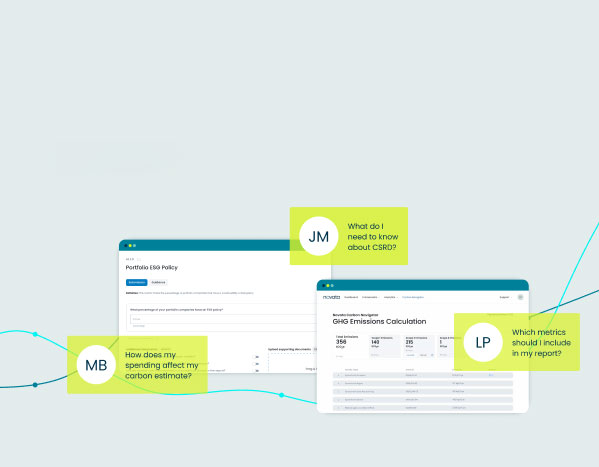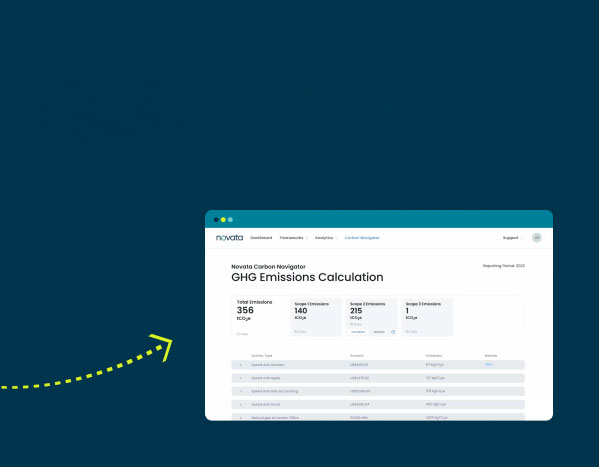The SEC recently issued a new proposal to add standardized climate reporting to required disclosures by public companies. This reporting includes disclosing the risk climate change represents to the business, plans to lower emissions and total level of direct and indirect greenhouse gas emissions. Novata CEO and Co-Founder Alex Friedman penned a piece for Barron’s on the proposal, suggesting how the new disclosure rules for public companies will specifically impact private markets.
“The SEC would require companies to analyze not just their own emissions but all the emissions that come from their suppliers, such as purchased goods and services,” Friedman said. “If a large public company has a net zero target — which they all have or will soon — it will have to figure out the emissions from its supply chain partners, which are almost universally private companies. As a result, any private company that sells its products or services to a public company with a net zero target will have to provide the same kind of climate disclosure as its much larger public partner.”
This downstream push on private companies to quickly get started tracking and reporting emissions comes at a time when social pressure to implement climate-aware policies is also mounting. Investors, employees, and customers are demanding private organizations commit to and report on ESG metrics. Yet private companies often have limited resources to invest in this kind of effort and, further, determining the right metrics for their businesses can be overwhelming.
Preparing for the SEC’s Proposed Climate Disclosure
Private organizations can get ahead of the domino-like effect that the SEC’s climate-related disclosure proposal is likely to catalyze. Here are three ways how:
1. Measure Scope 1, 2, and 3 carbon emissions
Getting a full picture of the environmental impact of an organization can help ensure long-term success, provide needed information to investors, and prepare the company for future national and regional climate policies. Leverage available tools to help quantify an organization’s carbon footprint. Nonprofit Climate Neutral offers a streamlined way to estimate carbon emissions. To get an estimate for Scope 1, 2, and 3 emissions, you only need the following information:
- Total company operating costs for the past year
- Facility names, types, locations and if you have control (meaning you pay employees or pay utilities at the facility)
- The types of products produced at each facility
2. Set goals for emission reduction or offsetting
Industry benchmarking can be a useful tool in determining appropriate climate goals. Whether it’s a private organization tracking its own performance or a private equity firm guiding targets for its portfolio companies, looking at what others in similar businesses are doing can be a helpful starting point in assessing opportunities for improvement.
3. Get a process in place to track, and report on, results
Reporting will be critical as public companies react to the SEC Climate Disclosure Proposal and investors and other stakeholders continue to request ESG reports. Consider leveraging a trusted data platform to streamline the process of tracking the impact of reduction and offsetting efforts.
Begin Measuring ESG Data For Your Firm
The climate crisis is urgent and must be addressed. We all have a role to play. The business world is on the cusp of experiencing a wave of changes when it comes to climate disclosure, as evidenced by the recent SEC proposal. Disclosure doesn’t have to be overwhelming. It is a chance for private organizations to step up to the challenge and set themselves apart in the minds of customers, employees, and investors, while doing good for the world.
Let us help you get started with ESG metrics today.






